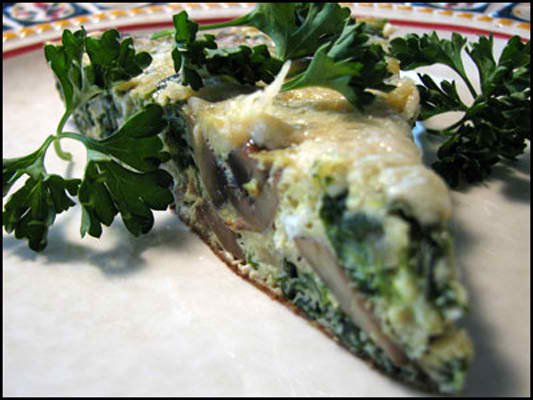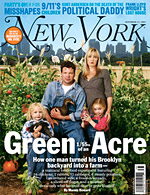Posts Tagged ‘Chicken Coop’
This weekend marks the official start to our growing season

and so it begins…
It the middle of February, technically still the dead of winter, but our unseasonably mild winter has every gardener itching to get outside and into the dirt. This weekend marks the official start to our growing season for cool weather crops, but we’ve had lettuces and spinach in the patio pot garden for weeks and they are now ready to harvest. Seems odd to be eating fresh greens this time of year when root crops and squash are the mainstay of any menu.
Seeds of other cool season crops and ones I know I want to grow are planted in pony-packs, peat pellets and flats and are incubating inside the farmhouse. Tomatoes, broccoli, cauliflower, cabbage, bell peppers and cucumbers are sitting inside on warming mats and in a few days we’ll have the beginnings of a summer full of fresh organic food.
The farm already has a huge garden complete with compost pile, raised beds, fencing for vine crops, berry patch, fruit trees, a chicken coop and a rain collection barrel. Whoever lived here before had no interest in living a sustainable life or even gardening for that matter. It has taken me years to clear out the debris, trim or remove overgrown and useless trees and rejuvenate the soil to the point where it could sustain life. But, we did it. The soil is rich and friable, crawling with earthworms in every spade that is turned. This is a huge accomplishment – soil that is alive!!
In a few weeks the soil will be over 45 degrees; dry enough that I can till and work in the mulch and compost that was laid on top during the winter months; warm enough to plant the first seedlings outdoors. I’m excited. Along with the seedlings, root vegetables like beets, carrots, radishes and turnips will be directly sown. Read the rest of the story »
Full Moon Farming

Our full moon hides behind a bank of storm clouds tonight. It peeks out and then sneaks back in, covered by a mass of gray. There’s something about doing evening chores under the soft glow of a full moon that makes everything seem new and pleasant. She rises slowly over the tree tops, seemingly out of nowhere. She watches as we muck about in boots with buckets and bags, through dirt and mud and poo. She watches the night unfold on our little farm.
She watches as Brianne throws hay and grain into the lamb’s feed trough and bounces light off the water as it cascades from an overturned bucket when the water is changed; sparkling clean and clear like the reflection of a mirror when it is replaced.
The moon peers down on us as we move from chicken coop to rabbit hutch, replacing bedding, filling feeders and turning kitchen scrapes into meat and eggs. She laughs with us as we hunt for egg treasures in the far corners of the barn. The girls have gotten clever at finding new places to hide their eggs – under the hay wagon, behind a feed barrel, inside a bucket, but we always manage to find them before too long. I talk to Sophia and stroke her head as I hand her a small treat, congratulating her on another successful egg.
The new lambs seem to be settling in just fine. Some do so faster than others. After 30-years of bringing lambs onto a farm I have learned that they each have their own time. All we can offer them is feed, water and shelter, medical help when they need it and a small bit of attention. The rest is on sheep’s time – they either settle in or they don’t. We have two wethers right now, one a charcoal grey Hampshire cross, the other the same breed, but white with wool on its face, both weighing about 95 pounds. Brianne will show them all spring before selling them to kids who can show them at the county fair. Sheep come and go on this farm. Some are shown, some are sold and some are butchered to feed a mom and a daughter. It is the heart of this place and its owners.
As I start for the house I turn back and look at the barn, the coop, the sheep, the new vegetable beds ready to be filled and the partially built duck and turkey runs. I hear Sophia rattling around in the barn, the hens cooing in their nests and the roosters settling in high in the rafters. I hear the lambs chew their cuds. The moon watches all this too. I smile.
I think about spring and know it will be here all too soon. But, I also know that chores under a full moon are a gift of winter and I am pleasured by it. I continue to the house thankful for the soft glow of a warming fire and the big pot of soup that awaits.
The storm can rage all it wants now, for the farm and its owners are warm and safe and fed.
![]() photo credit: trustypics
photo credit: trustypics
Frittatas

We all know that when life gives you lemons you make lemonade. But, what about when life give you too many eggs? I pondered that question this afternoon when I pulled a basket full of eggs out of the chicken coop. I couldn’t believe it, there were eggs in every nesting box. And, we have ten. I looked at the pile, then looked at the hens and wondered what kind of super human – I mean super chicken – effort did such a feat take. Then I wondered what the hell I was going to do with all those eggs.
After a few quizzical moments it came to me – Frittata.
Frittatas are similar to quiches on the inside, but don’t have a crust. They are firm and thick like omelets and can contain any variety of chopped meat or vegetables. They are the Italian version of an omelet.
Now I was on a mission. I took the eggs into the kitchen and set them on the counter. When I opened the fridge, staring me in the face were three dozen more eggs to go along with today’s haul. What the hell were my hens eating or doing that they produced this many eggs. Or, was it that we were not eating eggs often enough. How could that be though? I have eggs and toast almost every day for breakfast. Moving on with my mission, I rummaged through the fridge and pulled out parmesan cheese, spinach, asparagus, and onion. This would be the base for my frittata. I would use bacon instead of ham, fry up some potatoes and have toast with homemade blueberry jam. It was beginning to sound like breakfast for dinner, but didn’t care. I was going to use up at least 6 eggs, maybe even 10.
The basic recipe I used is below. Any combination of ingredients can be added with success. Even the cheese can be changed. Try Monterey Jack, White Cheddar or Swiss. Frittatas are a great way to use veggies and small amounts of meat to make a nutritious and satisfying meal. For a wonderful weekend brunch pair your Frittata with a nice green salad. Read the rest of the story »
Stealing the Day
I feel like I have stolen this day. I took off from work, so instead of the usual morning routine I really took my time with farm chores this morning. Nothing grand, just a few extra moments to check over the animals, water the plants on the porch and brew a pot of fresh tea, which I just pulled off the stove burbling and gerking as I pour it into the teapot. Oh, it’s shear decadence for an office farmer to have a day off work.
Moments ago, when I walked outside, the grass was damp from the early morning fog. In spite of its sogginess, the sun was out; the sky was a clear blue and bounced off every tiny droplet. I breathed deep, taking it all in, savoring the taste. It’s hard to feel Zen though when sheep are baaing, hens are cackling, dogs are barking and a lone rabbit is racing around in his hutch. They all want breakfast and they all want it now. You can see how that moment wasn’t quite serene. But, it was to me.
Brianne and I started our morning chores like we always do, in the sheep pen. They are the most eager and can cause the most trouble if not fed promptly, so off she went to fill grain buckets, top off the water trough and throw a few handfuls of hay. I fed and checked on the dogs then moved towards the chicken coop to make sure we hadn’t lost anyone in the night. With the headcount complete I lifted the latch on the gate and let the hens out into the barn. From there they can make their way into the garden and around the yard.
Every day we let the hens out of their coop, and give them a chance to feel the warm sun, scratch in the dirt looking for bugs and peck at the green grass. They’re sneaky beasts though. Clever enough to fly over fences and too curious to stay out of the garden, so I keep them away from the lettuce just to give myself peace of mind.
A load of laundry I washed last night is ready to hang on the line. The sun was barely over the tree tops as I clipped each piece of clothing to the line. Laundry is an oddly calming job, almost therapeutic.
By the time we came inside I felt oddly refreshed from our slow morning of chores.
Our weekend mostly involved transporting sheep (Brianne was involved with a showmanship workshop) and June gardening.
I’ve come to the conclusion that “June gardening” is just a romantic way of saying weeding. I spent hours down on my hands and knees pulling intruders from between the rows. This year’s garden started out to be the most diverse we’ve ever attempted, and we have the weeds to show for it, but we haven’t been without our troubles. And, the only things that seem to be thriving in the garden are the rabbits and squirrels. Our verdant young peach tree that was loaded has now been stripped bare. Not one peach is left. Oh, a few pits clung to the branches, but nothing that’s edible for us. I don’t mind part of my crops going to the wildlife, but when they get greedy that’s another matter entirely.
This is a strange place to be a homesteader. I have never lived or worked with so many people that stand on both sides of the farming fence. Nearly half my neighbors grow their own, while the other half has no use for gardening at all. I’m sometimes a telephone farmer as well. Just yesterday, my neighbor Fran called to talk about the new chicks we had given her and how they were too timid to go inside the coop, so spent the night under the ramp that leads to the coop. Seems like everyone’s working for their supper these days.
As I type things are pretty quiet outside, which is a rare occurrence. Their mouths must be full. From the kitchen door I can see the roosters strut around the yard guarding his girls. I see the sheep frolicking and chasing each other in their fenced yard. I know the rabbit is content and the dogs are napping after their morning meal. And me—the Queen of all this majesty¬—am enjoying a cup of tea smooth enough to calm any savage beast.
Not a bad way to start a stolen day. Not bad at all.
The Sun Hangs Low
Daylight savings time has given this farm a special gift. The extra hours of daylight allows enough time to let the chickens out in the garden every evening. For a few brief hours they can play and run, scratch in the dirt and dig for bugs. Then before I head back into the house, I move them all back into the safety of their little coop. Most of the winter they’ve been stuck inside since heavy rains turned their outside run into a pond. But now the rains have subsided and the water has retreated into the soil. The flock can run out in the open again. And, you should see them go – running around, well, like chickens with their heads cut off – flapping their wings and squawking like mad.
So, while Brianne is working her show lambs, I walk over to the coop, grab a handful of scratch, unlatch the door and entice them out. It doesn’t take much, before they are happily pecking and scratching at dropped bits of grain and hay on the barn floor. When I first open the coop door, the smaller bantams are reluctant, but the Blue Cochin (Blue Boy) makes a beeline for freedom, followed by three Arucana hens. In the end, even the timid girls venture out. Eventually, they all make it into the wide open world. I follow behind moving them toward the garden and out of sight of the sheep. Not that the sheep will do any harm, it’s just that the chickens are a distraction while Brianne is working her lambs.
This weekend saw days in the 60’s and is slowly absorbing what’s left of the standing water in the garden. I’ve started turning garden beds, and getting my early season veggies in. Lettuces, peas, broccoli, onions… (you get the idea.) But there is so much to do outside right now; the garden is constantly in the back of my mind.
Yesterday was a hard core farm day. We spent most of the afternoon working outside. We had to clean out old bedding in the chicken coop and replace it with fresh and the sheep pen needed to be raked out too. We hauled 50lb bags of sheep feed and lay mash over our shoulders. We moved the rack of firewood, that stands near the back door for easy access during rainstorms, to it’s off season location on the south side of the house. And when we weren’t doing intense physical labor we were tending to the early blooming flowers. We also collected eggs, checked on overall bird health and trimmed a few toenails and spurs. The lambs’ hooves were also trimmed and checked for signs of foot rot (a common condition in wet weather when there is standing water). We even managed to clean out the rabbit hutch and move all that glorious, nutrient rich manure to the compost pile. Needless to say, we came in from our long day dirty, sore and tired, but happy that we were able to accomplish so much. A long hot bath, a warm home cooked meal and good book enjoyed in a quiet room set us back on tract though.
It was all worth it.
I’ve got a pot of tea on now, and listening to the chicks in their box house beside me while I type is like a sweet symphony.
In a few moments I’ll go out to feed the dogs and refill the chicks’ water and food. But, for now, I think the dogs and I are going to sit here and enjoy some music and Earl Gray tea. It’s not like they haven’t been through this before. Enjoy your evening folks.


 At 6:40 a.m. on August 8, the tornado hit my house in Brooklyn. Most people viewed it as a snow day in summer, a meteorological oddity. Not me. After a sleepless night listening to the wind and the rain intensify, I watched the sky turn green, then heard the hemlock tree in the yard next door split in two, clip the gutter on the third floor of my house, and bounce off the roof of what used to be our garage and had come to be known as “the barn.” As the wind torqued up even further, the limb of an oak torpedoed the most productive quarter of my vegetable garden, smothering a thicket of tomatoes, snapping the fig tree, pulverizing the collard greens, burying the callaloo, and splintering the roof of my main chicken coop.
At 6:40 a.m. on August 8, the tornado hit my house in Brooklyn. Most people viewed it as a snow day in summer, a meteorological oddity. Not me. After a sleepless night listening to the wind and the rain intensify, I watched the sky turn green, then heard the hemlock tree in the yard next door split in two, clip the gutter on the third floor of my house, and bounce off the roof of what used to be our garage and had come to be known as “the barn.” As the wind torqued up even further, the limb of an oak torpedoed the most productive quarter of my vegetable garden, smothering a thicket of tomatoes, snapping the fig tree, pulverizing the collard greens, burying the callaloo, and splintering the roof of my main chicken coop.
Recent comments
Aenean nonummy hendrerit mauris. Phasellus porta.